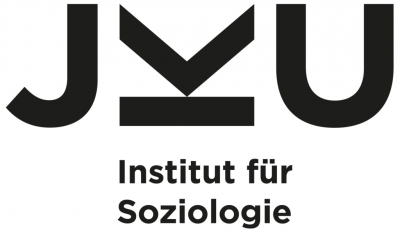


Empirical social research made easy
University of Applied Sciences Upper Austria - Campus Hagenberg
About
Trailer for Empirical social research made easy
General Course Information
Content
Course Content
This course gives a basic introduction to social science research in six lessons. We clarify the goals of empirical social research and address the differences and similarities between quantitative and qualitative research. We also take a closer look at each step of the research process.
The following topics will be covered:
1. Getting started with empirical social research - What are its goals and topics?
2. Aims and procedures of quantitative and qualitative research - What research approaches can we take?
3. Literature research and research questions - How do we narrow down our research goal?
4. Study design and data collection methods - How do we translate our research goal into data?
5. Sampling - How do we select participants?
6. Analysis and presentation of results - How do we arrive at results?
Course Goals
After completing the course, you will have developed a basic understanding of empirical social research that can serve as a foundation for further study.
✔️ You will be able to explain what the goals of empirical social research are.
✔️ You will be able to describe the similarities and differences between quantitative and qualitative research.
✔️ You will be able to describe how to develop a specific research question based on a broader research topic.
✔️ You will be able to explain which basic decisions need to be made in research design.
✔️ You will be able to explain the advantages and disadvantages of various sample selection procedures.
✔️ You will be able to describe the general premise of quantitative versus qualitative data analysis and explain basic differences in their presentation of results.
Previous Knowledge
You do not need any prior knowledge of empirical social research to complete this course.
We'll start together from the beginning!🚀
Course Procedure
In this course, you will learn the basics of empirical social research in six short and varied lessons.
▶️ In each lesson, you'll find a compact animated explainer video that brings important information to the point.
▶️ In addition, our experts deal with exciting topics related to empirical social research in live videos.
▶️ We provide additional texts and references to accompany the videos so that you can delve deeper on your own.
▶️ At the end of each lesson, you'll find an exercise or a short quiz to (self-)check your learning success.
Certificate
For actively participating in the course, you will receive an automatic certificate which includes your username, the course name, as well as the completed lessons. We want to point out that this certificate merely confirms that the user answered at least 75% of the self-assessment questions correctly.Licence
This work is licensed under CC BY 4.0Course Instructor

We are an interdisciplinary team with many years of experience in teaching social science methods in a university context as well as expertise in e-learning.
Mag.a Dr.in Carrie Kovacs
FH-Professor for Organizational Development in the study program Communication, Knowledge, Media (KWM) at the FH Upper Austria
Psychologist with teaching and research experience in quantitative methods
FH-Prof.in Mag.a Dr.in Christina Ortner
FH-Professor for Online Communication in the study program Communication, Knowledge, Media (KWM) at the FH Upper Austria
Communications scientist with teaching and research experience in qualitative methods
FH-Prof. in Mag.a Dr.in Tanja Jadin
FH-Professor for E-Learning/New Media in the study program Communication, Knowledge, Media (KWM) at the FH Upper Austria
Psychologist with a focus on media didactics and the psychology of learning
Univ. Ass.in Mag.a Dr.in Ursula Rami
Senior Scientist at the Institute of Sociology at JKU Linz
Sociologist with teaching and research experience in quantitative as well as qualitative social sciences
Login & Enrol Currently: 361 Participants
Free for all € 0.00
Partners
The MOOC is a cooperation project of the Research and Development GmbH of the University of Applied Sciences Upper Austria (FH OÖ) at the Research Center Hagenberg and the Institute of Sociology of the Johannes Kepler University Linz (JKU) and is partially funded by the Forum neue Medien in der Lehre Austria "fnma".
University of Applied Sciences Upper Austria - Campus Hagenberg



